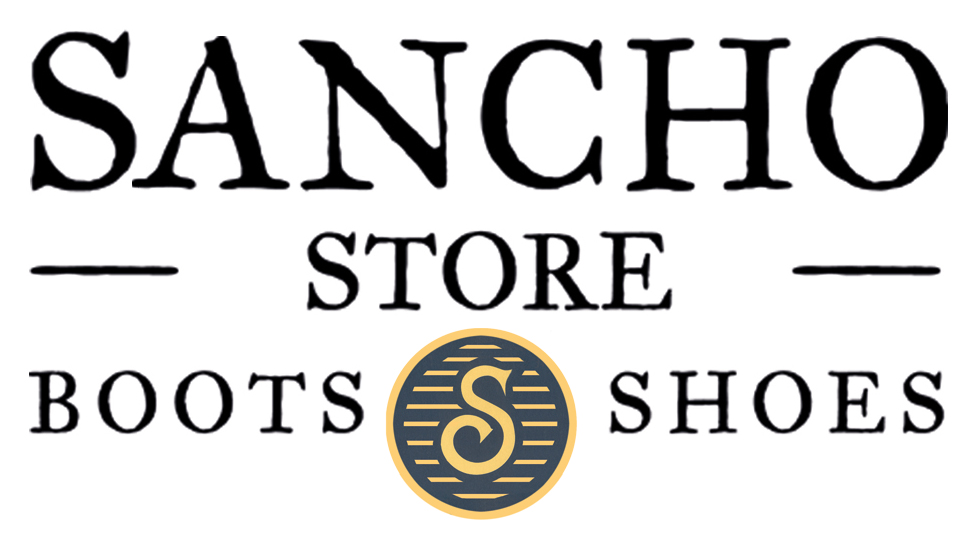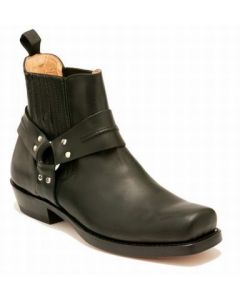- 31.01.2023
Schuhe sind essenziel für unser Wohlbefinden. Die Kunst des Schuhmachens und Repariens ist eine Handwerkskunst, die faszinierender nicht sein könnte.
Da alle unsere Schuhe und Stiefel handgemacht sind und wir uns, auch im Sinne der Nachhaltigkeit, dafür einsetzen, dass sie immer wieder repariert werden können, interssieren wir uns ganz besonders für Schuhmacher. Durch die Faszination und der Austausch mit den Künstlern der Leisten und Leder, entstand in Zusammenarbeit mit dem Schweizer Kulturmagazin Ensuite www.ensuite.ch , das Projekt SchuhmacherInnen in der ganzen Welt zu interviewen. Wir befragten sie nach ihrer Sicht auf die Schuhmacherei, ihren Werdegang und natürlich ganz besonders: handgemachte Schuhe und Stiefel.
The Flagship Store:
Firenze - Via San Niccolò 2
tel: +39.055.046.0476 -
Bespoke@StefanoBemer.com


Company Showroom:
New York - 62 Grand Street2nd Floor
tel: +1.646.590.4254
NewYork@StefanoBemer.com




The company is housed in an old church on the south side of the Arno and has a store, a workshop, a school and a tailor's shop on three floors.
Stefano Bemer is considered one of the best and most exclusive shoemakers in the world. An unrivaled passion for creating the perfect shoe.
After Stefano Bemer's death, the company was taken over by Tommaso Melani, the grandson of the founder of the historic Scuola del Cuoio.
Stefano Bemer's legacy continues today with the same vision and discipline, including a shoemaking school. He has always strived to create the perfect shoe, which is reflected today in the highest standards of Italian quality, style and elegance.
This ongoing journey is best exemplified by the ten months Stefano Bemer spent teaching the art of shoemaking to British-Irish theater and film actor Daniel Day-Lewis, who is known for his meticulous approach to his work. Their shared passion for their respective art forms brought them together: Mr. Day-Lewis doesn't just play a role, he becomes his character.
Stefano Bemer doesn't just make shoes, he creates art.




Do you also repair shoes or do you only make new ones?
We are proud to say that we have been offering all kinds of refurbishment and repair services for our shoes since 1983.
If so, what is the cost of a protective sole for a boot?
The thin Vibram rubber layer starts at 60.00 euros.
How did you become a shoemaker?
Stefano Bemer started his apprenticeship in 1980 and opened his own business in 1983.
It all started with John Lobb!
1980, Stefano, a pair of Lobb and a hole in the sole...
The young Stefano Bemer gained his first experience in the world of men's shoes in a small shoemaker's workshop in Greve in Chianti, where he completed an apprenticeship as a shoe repairer. There, in the heart of the Tuscan wine region, he one day came across a pair of Lobb shoes that had been delivered with a hole in the sole. As he had a high regard for the brand, he carefully cut out the sole, exposed the inner sole and carefully examined the piping... At that moment, he decided that he would become a bespoke shoemaker!
He taught himself the infinite variations of shoemaking, first by repairing shoes, then by attending courses and workshops, and finally by mastering his own technique and sense of style in both shaping lasts and creating patterns.
It is thanks to Stefano Bemer's dedication that a pair of worn-out Lobbs in 1980 became a brand name closely associated with the highest standards of elegance and quality and is considered by many to be the creator of the best Italian men's shoes.
Where did you learn your craft?
Our 12 shoemakers are all trained in our school first(www.schola.academy) and then spend a year doing an apprenticeship with us before becoming part of our team.
If you weren't a shoemaker, what would you be?
A shoemaker! :-)
How many hours do you work per day?
Our workshop is open 9 hours a day and our master craftsmen often stay even longer...
What has changed in your profession over the years?
We are more international and better organized.
What makes a good shoemaker?
The ability to use the experience gained over time to hone their skills and the ability to learn from mistakes.
What is the biggest challenge for you in shoemaking?
Time management. Every customer wants the shoes yesterday.
It takes an average of one hundred hours to make a shoe.
What do you have to pay particular attention to when caring for handmade shoes?
Correct daily storage (shoe trees and brushes) and regular care.
What are the advantages of a custom-made shoe?
It improves the fit and the overall experience to a level that off-the-peg shoes cannot normally offer.
What shoes are you currently working with?
We create timeless pieces, but our bestseller is a full brogue oxford made from shaded American calfskin with a hand-finished patina.
How often does a customer come to you?
Usually twice a year.
Do you have many regular customers, and what kind of people are they?
80% of our customers have more than one pair of our shoes. They like unobtrusive exclusivity and appreciate personal service.
What do you talk about with your customers?
Everything except shoes!
Do you have celebrity customers?
Yes, but we don't mention names!
Where were you last on vacation and what shoes did you take with you?
The last time I was in Argentina. I had loafers with me for the summer weather and boots for country life.
Is therea shoe that you will never forget?
Our first double monk!
What is your absolute favorite shoe and which shoes don't you like at all?
Tassel loafers in kangaroo for the summer. We don't like inverted seams.
What are your plans for the future?
We are opening a store in Milan next year.
What footwear-related moment will you never forget?
Our first event in Florence during Pitti Uomo with Permanent Style. It was the first symposium for shoemakers ever organized and we did it!











